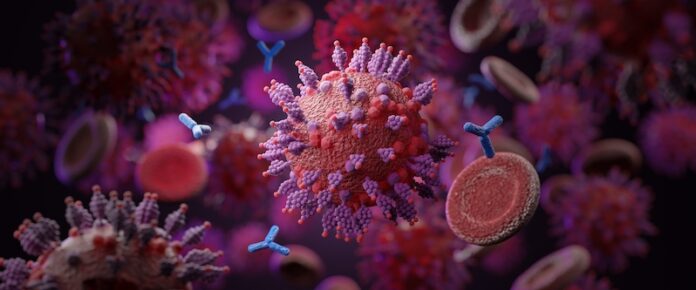
The first national study of its kind to probe the impact of COVID-19 and COVID-19 mRNA vaccines on the heart has received a $2M boost from the Public Health Agency of Canada (PHAC) to expand and extend patient follow-up, and to do cardiac imaging on those affected. MYCOVACC (Canadian Cardiovascular Society National Active Surveillance Study of MYocarditis and/or Pericarditis following mRNA COVID-19 VACCination) will receive an additional two years of funding, bringing the total investment in this important initiative to $3.6M over three years. Led by cardiologist Dr. Nathaniel Hawkins of the University of British Columbia, MYCOVACC began in October 2022 in response to reports of rare cases of myocarditis (inflammation of the heart muscle) and pericarditis (inflammation of the lining surrounding the heart muscle) following mRNA vaccines and COVID-19 infection.
“The pan-Canadian study, which involves the leading experts from cardiac care centres across the country, is working to determine if people who experience these rare heart conditions are at increased risk of future health problems,” Dr. Hawkins explains. While most people make a full recovery after myocarditis and pericarditis, long-term outcomes warrant further investigation. The MYCOVACC team will provide valuable insights for clinicians, public health agencies and decision-makers to inform future vaccine programs. Adults and children who take part in the study will be assessed at intervals and then annually for up to three years by a participating specialist using a clinical protocol. They will also be asked to complete quality of life, mental health, physical activity, and health outcome questionnaires.
The new funding allows for:
• continued expansion of the existing study and extended follow-up of enrolled patients;
• a new project using cardiac MRI to investigate recovery of the heart;
• extended follow-up of patients with COVID-19 associated myocarditis and/or pericarditis; and,
• a study to explore reporting of adverse events following immunization to inform development of new tools.
The CCS is bringing together researchers, research networks, patients, and public health authorities from across the country to undertake the project. The Canadian Congenital and Pediatric Cardiology Research Network (CCPCRN) recently joined the MYCOVACC team to ensure strong representation of pediatric hospitals in the study.
Dr. Frédéric Dallaire, scientific director of CCPCRN, says: “We are working hard in involving a broad national representation of pediatric cardiology specialists to ensure that a majority of children and adolescents affected by this rare condition are identified, even those with the mildest forms of the disease.”
This new investment will help support public trust in vaccine safety and increase confidence in COVID-19 vaccines, especially among young people and their parents. A good understanding of what happens to those who experience rare cases of myocarditis and/or pericarditis after an mRNA COVID-19 vaccine will inform discussions with Canadians of all ages about vaccination. n

